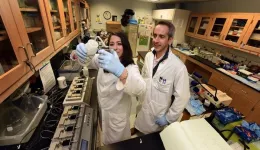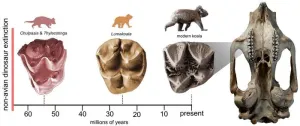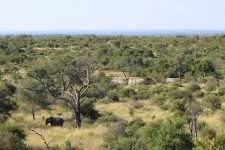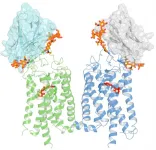(Press-News.org) Cosimo Commisso, Ph.D., has received a grant from the Department of Defense for $1 million to advance the research of a small molecule that kills pancreatic cancer cells by disrupting their pH equilibrium. The project is funded as part of the Pancreatic Cancer Research Program (PCARP), which aims to improve our understanding of pancreatic cancer for the benefit of service members, veterans, their families and the general public.
“We’ve seen that this small molecule—called IMD-0354—works on cancer cells in the lab,” says Commisso, associate professor and director of the Cancer Metabolism and Microenvironment Program at Sanford Burnham Prebys. “This award will help us better understand how it works and test it in vivo to see how effective it is in a whole organism.”
Each year, more than 45,000 Americans lose their lives to pancreatic cancer—now the third-leading cause of cancer-related deaths—with a five-year relative survival rate of just over 12%.
“Since I started working in this field more than a decade ago, we’ve managed to double the survival rates for people with pancreatic cancer,” says Commisso. “But that’s not good enough. For those battling this dangerous disease, we need to do much, much better.”
Pancreatic cancer cells are unusually sensitive to changes in their pH—a measure of acidity that plays a critical role in cellular activity. Commisso and his team previously discovered that pancreatic cancer cells control their pH by packaging up excess acid and storing it separately from the rest of the cell’s fluids. This process doesn’t occur in healthy cells.
“Because this pH regulation process is unique to pancreatic cancer cells, targeting it with IMD-0354 and related molecules could allow us to treat pancreatic cancer while minimizing negative effects on the rest of the body,” adds Commisso.
The PCARP supports rigorous, innovative, high-impact research that will advance our understanding of the biology and genetics of pancreatic cancer and improve the quality of life for pancreatic cancer patients.
“I‘m grateful for this support, which will accelerate my lab’s work to find better treatment options for people diagnosed with pancreatic cancer,” says Commisso. “We need breakthroughs, and this award will help us get there.”
The title of the grant, issued by the U.S. Department of Defense, is “Targeting Organelle pH Homeostasis in Pancreatic Cancer,” Award Number: HT9425-23-1-0795.
END
US Department of Defense backs Cosimo Commisso’s pancreatic cancer research
2023-09-07
ELSE PRESS RELEASES FROM THIS DATE:
High levels of depression found among Canadian older adults with cancer during the COVID-19 pandemic
2023-09-07
Toronto, ON —Older adults who have had cancer had a high risk of experiencing symptoms of depression during the early months of the COVID-19 pandemic according to a new study published in Cancer Management and Research.
The study was focused on a sample of 2486 adults aged 50 and older with a history of cancer who participated in the Canadian Longitudinal Study on Aging. Among the 1765 individuals from the study who had a history of cancer but no lifetime history of depression, researchers found that 1 in 8 experienced depression for the first time during the early stages of the pandemic.
“The ...
Timothy Huang awarded $2.6M to solve Alzheimer’s disease puzzle
2023-09-07
With the help of a new grant from the National Institute of Health for more than $2.6 million, Assistant Professor Timothy Huang, Ph.D., will continue his research on the role of the brain’s immune cells on the risk of developing Alzheimer’s disease.
Alzheimer’s disease affects more than 47 million people worldwide, with 10 million new cases of dementia diagnosed each year. This number will continue to grow as the world population ages. Newly approved FDA treatments for Alzheimer’s remove beta-amyloid, a protein that accumulates into plaques, from the brain. However, ...
Culture-friendly therapies for treating anxiety and depression in Japanese youth
2023-09-07
Cognitive-behavioral therapies (CBT) have become increasingly popular over the past few decades. This psychological treatment, used to treat problems ranging from marital issues, eating disorders, anxiety disorders and depression, has been adopted by clinicians around the world. However, the implementation of CBT still lags outside the Western countries where it was first developed.
In a new review article, researchers examined the most popular CBT programs for young people in Japan, a country that ...
Faulkner to be honored by American Heart Association
2023-09-07
AUGUSTA, Ga. (Sept. 7, 2023) – Jessica Faulkner, PhD, a physiologist whose research is focused on sex differences in cardiovascular disease at the Medical College of Georgia at Augusta University, is the recipient of the Harry Goldblatt Award for New Investigators from the American Heart Association’s 2023 Hypertension Council. She will be honored at the Hypertension Scientific Sessions in Boston this week.
This prestigious award is named for the pathologist who established the first animal model of hypertension in 1934 and recognizes an early career independent investigator working in hypertension or cardiovascular research who has significantly contributed ...
New test shows promise for detecting hard-to-find cervical cancers
2023-09-07
September 7, 2023—(BRONX, NY)—In findings with potentially important implications for cervical cancer screening, scientists at the National Cancer Institute (NCI)-designated Montefiore Einstein Cancer Center (MECC) have developed a test for detecting a type of cervical cancer that Pap tests often miss. The findings published online today in the Journal of the National Cancer Institute (JNCI).
“Our novel test appears sensitive for detecting cervical adenocarcinoma [ADC]—which now accounts for up to 25% of cervical cancer cases—as well as its precursor ...
New koala relative fills a branch of Australia’s unique marsupial story
2023-09-07
Koalas are endangered in much of Australia now but in in the past there were multiple species living across the continent. The discovery of an ancient relative of the koala helps fill a 30 million year gap in the amazing evolution of Australia’s marsupials, according to a new study by Australian and British scientists published in Scientific Reports.
The study was led by Flinders University PhD student Arthur Crichton, who found fossil teeth of the new species at the Pwerte Marnte Marnte fossil site south of Alice ...
Eye-tracking technology helps give a voice to older people living with dementia
2023-09-07
More than 50% of Australians living in residential aged care facilities have a dementia diagnosis, with aged care services around the world preparing for the number of older people aged 65 years and above to double in the next 30 years.
For the first time, experts at the Caring Futures Institute at South Australia’s Flinders University are using innovative eye-tracking technology to ensure that the voices of all older people are heard to drive positive and effective change in keeping with the Royal Commission into Aged Care Quality and Safety’s call to re-assess the quality of aged care in Australia.
The Flinders University ...
Capturing carbon in savannas: New research examines role of grasses for controlling climate change
2023-09-07
In recent years, the escalating impact of global warming has prompted efforts to reverse troubling trends, often by planting trees to capture and remove carbon dioxide from the atmosphere and store it. New research from a team led by Young Zhou, from the Quinney College of Natural Resources and the Ecology Center, shows that, in addition to trees, humble grasses also play an essential role in capturing carbon — more important than previously thought.
A recent initiative set its sights on capturing carbon in tropical savannas, an ecosystem characterized by shared space of trees and grasses. The project initiated ...
Street medicine filling a major gap by providing behavioral health care for people who are homeless
2023-09-07
Mental health and substance use disorders are prevalent among people experiencing homelessness, yet access to care for these health issues is challenging for people living on the streets. Now, a new survey conducted by a team of researchers from USC Street Medicine found that, in California, street medicine programs are helping to fill this gap, delivering critical, high-level mental health and substance use treatments to the state’s unsheltered population.
The survey, published in Community Mental Health Journal, shows that street medicine has the potential to serve as the basis for a strategy to expand access to behavioral health care for people who ...
UC Irvine researchers discover a nanobody which may lead to treatment for Retinitis Pigmentosa
2023-09-07
A team of scientists from the University of California, Irvine, believe they have discovered a special antibody which may lead to a treatment for Retinitis Pigmentosa, a condition that causes loss of central vision, as well as night and color vision.
The study, Structural basis for the allosteric modulation of rhodopsin by nanobody binding to its extracellular domain, was published in Nature Communications. Authors of the study were Arum Wu, PhD, David Salom, PhD, John D. Hong, Aleksander Tworak, PhD, Philip D. Kiser, PharmD, PhD, and Krzysztof Palczewski, PhD, in the Department ...








